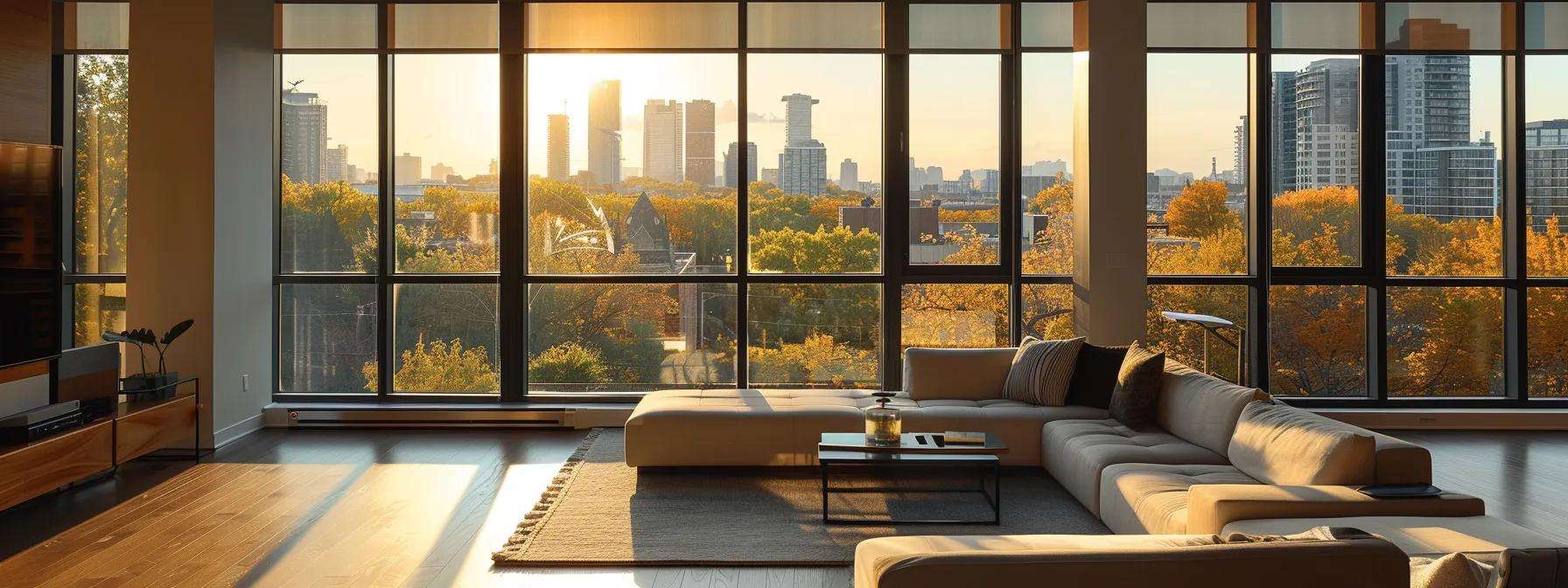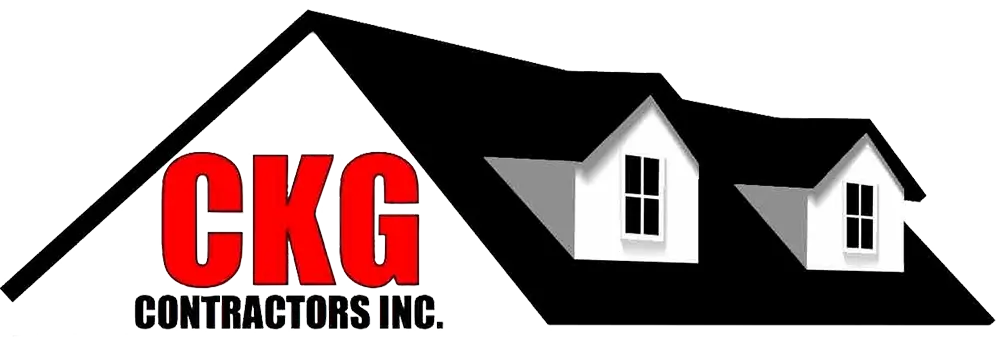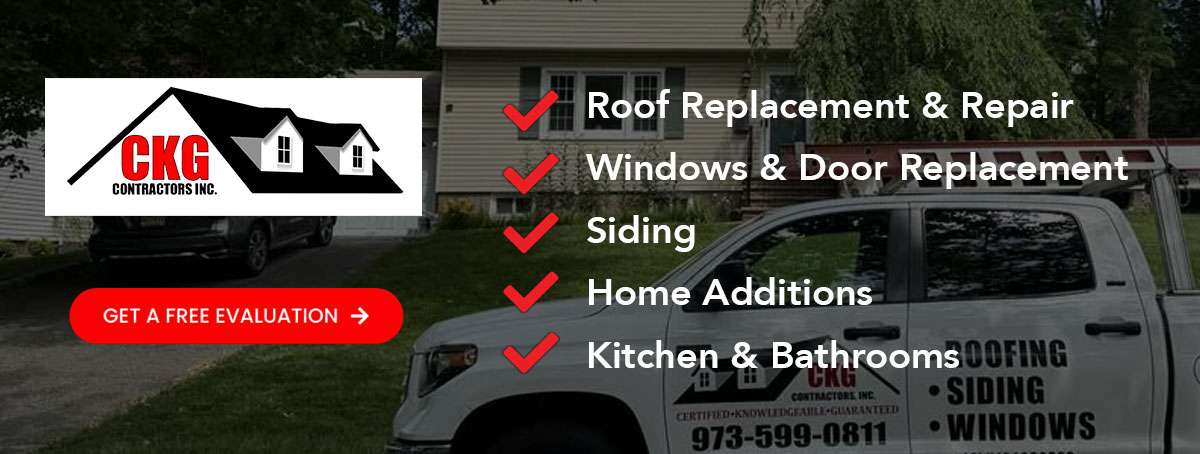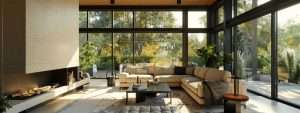
- Comparing Vinyl vs. Fiberglass Window Frames for NJ Climates: Which Is Best for Energy Efficiency, Cost, and Maintenance?
- What Are the Key Benefits and Drawbacks of Vinyl Window Frames in New Jersey?
- What Advantages Do Fiberglass Window Frames Offer for NJ Homeowners?
- How Do Vinyl and Fiberglass Window Frames Compare in Cost and Long-Term Value for NJ Homes?
- How Does NJ’s Unique Climate Affect the Performance of Vinyl vs. Fiberglass Window Frames?
- What Are the Best Maintenance Practices for Vinyl and Fiberglass Window Frames in NJ?
- How Can NJ Homeowners Choose the Best Window Frames Based on Their Needs and Budget?
- What Are Common Questions NJ Homeowners Ask About Vinyl vs. Fiberglass Window Frames?
- Frequently Asked Questions
Comparing Vinyl vs. Fiberglass Window Frames for NJ Climates: Which Is Best for Energy Efficiency, Cost, and Maintenance?
In New Jersey, selecting the appropriate window frame material is crucial for homeowners seeking energy efficiency, long-term cost savings, and reliable durability. At CKG Contractors, Inc., we emphasize making an informed choice between vinyl and fiberglass window frames. Many homeowners wonder which material best withstands NJ’s harsh coastal, humid, and variable climate while providing optimal performance and low maintenance. In this review, we compare the key benefits and drawbacks of vinyl versus fiberglass options. We discuss energy efficiency, durability, costs, and maintenance requirements specific to NJ and provide real-world data, case studies, and detailed tables to showcase the advantages and trade-offs. Ultimately, you will understand which option aligns best with your home improvement needs, balancing upfront costs, energy savings, repair expenses, and longevity.
Let’s explore the specific aspects of vinyl and fiberglass window frames to determine which best serves your NJ home.
What Are the Key Benefits and Drawbacks of Vinyl Window Frames in New Jersey?
Vinyl window frames are popular in NJ due to their energy efficiency, affordability, and low maintenance. Key benefits include excellent thermal performance, moisture resistance, ease of cleaning, and a variety of styles and colors. The low initial cost makes vinyl an attractive option for budget-conscious projects. However, vinyl can expand or contract under extreme sunlight or cold conditions, which may affect its sealing and durability over time. Its performance in NJ depends on the manufacturing quality and sealant technology used. Additionally, vinyl may lack the premium aesthetic of fiberglass and can sometimes degrade with prolonged UV exposure. Finally, because vinyl is a plastic-based material, it may be less strong than fiberglass, potentially leading to higher repair or replacement costs over time.
What Makes Vinyl Window Frames Energy Efficient for NJ Weather?
Vinyl frames are designed with multi-chamber profiles that trap air and create a robust thermal break between the interior and exterior. High-quality vinyl typically includes low-emissivity (low-E) glazing that reflects heat during winter and blocks excessive heat in summer, helping reduce energy consumption by up to 20% when properly installed. Innovations like advanced UV inhibitors and reinforced profiles help vinyl maintain its efficiency through NJ’s seasonal extremes and rapid temperature changes. Laboratory tests have shown that vinyl windows can outperform older aluminum frames in reducing energy loss by offering competitive U-factors.
How Durable Are Vinyl Window Frames Against NJ Climate Challenges?
Vinyl is engineered to resist moisture, corrosion, and in some cases UV degradation. In NJ, where winters can be harsh and coastal regions face salt air, vinyl’s non-rot and non-warp characteristics are advantageous. Yet, extended UV exposure in southern NJ may lead to fading or brittleness, and severe cold can cause minor expansion or contraction that affects seals if installation is not optimal. Many manufacturers offer warranties of 20 years or more, reflecting confidence in vinyl’s durability when high-quality materials and proper installation techniques are used.
What Are the Typical Costs of Vinyl Window Frames and Installation in NJ?
Vinyl window frames are generally more affordable, with NJ installation costs ranging from $300 to $700 per window. The lower production costs and high supply contribute to this budget-friendly pricing. Although vinyl’s upfront costs are low, additional expenses may arise if maintenance or seal repairs are needed later on. Many homeowners find that energy savings over time help offset the initial investment. Financing options and package deals including warranty support further enhance its appeal as a cost-effective solution.
How Easy Is It to Maintain Vinyl Window Frames in NJ Homes?
Vinyl frames are among the lowest maintenance window options. A simple cleaning with mild soap and water removes dirt, salt, and pollutants. They are resistant to rust and corrosion and do not require regular painting or sealing like wood. Homeowners are advised to perform routine inspections—at least twice a year—to check for cracked seals or discoloration from UV exposure. Overall, vinyl offers a maintenance-friendly solution that suits the busy lifestyle of NJ homeowners while keeping upkeep costs and efforts minimal.
What Advantages Do Fiberglass Window Frames Offer for NJ Homeowners?

Fiberglass window frames have emerged as a premium alternative, offering superior strength, enhanced durability, and an attractive, modern appearance. Key benefits include lower thermal expansion, excellent rigidity, and resistance to salt air and UV exposure. Though fiberglass comes with a higher initial cost, its extended lifespan and lower maintenance expenses often result in significant long-term savings. Additionally, many fiberglass options come with advanced insulation features and modern glazing that further lower energy consumption, making them well-suited for both aesthetics and performance.
How Does Fiberglass Perform in NJ’s Coastal and Variable Climate?
Fiberglass frames excel in harsh NJ climates. They resist expansion, warping, and degradation even when exposed to freezing winters, humid summers, and salty coastal air. Their composite structure remains dimensionally stable during rapid temperature fluctuations, and they naturally repel salt, minimizing corrosion. Field studies in NJ show that fiberglass maintains a secure seal and consistent energy performance even under prolonged high humidity and temperature changes, making it particularly favored in areas with aggressive coastal weather.
What Energy Efficiency Benefits Do Fiberglass Frames Provide in NJ?
Fiberglass windows offer significant energy efficiency due to their lower thermal conductivity. They generally have a lower U-factor than vinyl, which means faster indoor temperature stabilization and lower heating and cooling costs. Advanced models often include multiple chambers, superior sealing systems, and compatibility with low-E coatings and insulated glass units. These features make fiberglass especially effective in reducing energy costs throughout NJ’s seasonal extremes.
What Is the Lifespan and Durability of Fiberglass Window Frames in NJ?
Fiberglass frames are known for their exceptional durability, often lasting 30 to 50 years with minimal upkeep—nearly double the lifespan of typical vinyl frames. Their composite structure offers resistance to UV degradation, moisture, and chemical exposure. Manufacturers frequently back fiberglass products with robust warranties, emphasizing their long-term reliability. For homeowners considering window replacement in New Jersey, fiberglass presents a compelling value proposition.
How Does the Cost of Fiberglass Window Frames Compare to Vinyl in NJ?
Fiberglass windows generally come at a premium, with costs ranging from $500 to $900 per unit compared to $300 to $700 for vinyl. However, this higher upfront investment is often offset by lower maintenance costs, reduced energy consumption, and a longer lifespan. Many NJ homeowners find that the lower lifecycle cost makes fiberglass a better long-term investment. Enhanced curb appeal and increased property values also add to its value proposition, particularly over a 30- to 50-year period.
What Maintenance Is Required for Fiberglass Window Frames in NJ?
Fiberglass frames require minimal maintenance. Regular cleaning with non-abrasive solutions and annual visual inspections are typically sufficient. Unlike vinyl, fiberglass is less prone to warping or swelling and does not need regular painting or refinishing. Simple lubrication of moving parts and occasional hardware checks are generally all that is needed. With fewer repairs and minimal upkeep, fiberglass proves to be an efficient, long-term window solution in NJ’s demanding climate.
How Does the Cost of Fiberglass Window Frames Compare to Vinyl in NJ? (Additional Comparison)
When comparing lifecycle costs, fiberglass, despite a 20%–40% higher upfront expense, can deliver meaningful savings over time. Reduced heating and cooling expenses (often 10%–15% lower than with vinyl), lower repair frequencies, and enhanced durability contribute to a lower total cost of ownership. Financial analyses in various NJ areas suggest that while fiberglass may cost slightly more initially, its long-term advantages and minimal repair needs often make it a financially sound decision.
How Do Vinyl and Fiberglass Window Frames Compare in Cost and Long-Term Value for NJ Homes?
Both materials present distinct value propositions. Vinyl is favored for its initial affordability and ease of installation, making it appealing for projects with tight upfront budgets. In contrast, fiberglass offers improved durability, energy efficiency, and aesthetic flexibility. Although the initial cost is higher, its longer lifespan and lower maintenance requirements result in reduced overall lifecycle costs. Studies indicate that while vinyl might save money initially, the energy efficiency enhancements and extended service life of fiberglass windows often lead to better long-term value. For example, a typical vinyl window might cost around $400 installed compared to approximately $600 for fiberglass. When factoring in energy savings (potentially reducing utility bills by 10%–15%) and fewer repairs, fiberglass frequently emerges as the more cost-effective investment over decades.
Below is a table summarizing a comparative analysis:
How Does NJ’s Unique Climate Affect the Performance of Vinyl vs. Fiberglass Window Frames?

NJ’s climate—with its fluctuating temperatures, high humidity, coastal salt air, and strong UV exposure—significantly impacts window performance. Vinyl frames can be affected by thermal expansion and contraction, which may lead to gaps or misalignment over time. Prolonged UV exposure can also cause fading or brittleness, especially in lower-quality products, while coastal salt air may accelerate degradation.
Conversely,
frames are much better suited to these conditions. They exhibit minimal thermal expansion, resist salt-induced corrosion, and include UV inhibitors in their resin blend. Their stable performance under heavy precipitation and moisture makes
a more resilient option in NJ’s diverse climates.
How Do Salt Air and Humidity Impact Each Window Frame Material?
In coastal regions of NJ, vinyl can gradually degrade with constant exposure to salt air, which may accumulate and weaken the material over time. High humidity can also affect the seals around vinyl windows, reducing energy efficiency. Fiberglass, with its non-absorbent composite structure and tightly bound resin, resists both salt and moisture, maintaining its performance and structural integrity. This resilience minimizes the frequency of repairs and extends the window’s lifespan in challenging environments.
How Do Temperature Fluctuations Influence Frame Durability?
Vinyl frames expand and contract noticeably with temperature swings, potentially causing warping or weakened seals over time. In contrast, fiberglass’s low thermal expansion ensures that its dimensions and integrity remain stable despite NJ’s extreme seasonal temperature changes. This inherent stability protects energy efficiency and reduces the need for frequent repairs or replacements, resulting in better overall durability.
What Role Does UV Exposure Play in Material Degradation?
Long summer days in NJ can expose window frames to prolonged UV radiation. Lower-quality vinyl frames may fade, become brittle, or crack over years of sun exposure, diminishing their insulating capabilities. Fiberglass windows, however, are built with advanced UV inhibitors that help preserve their appearance and structural integrity over time, ensuring sustained energy performance even in sun-intensive areas.
What Are the Best Maintenance Practices for Vinyl and Fiberglass Window Frames in NJ?
Regular maintenance is vital to ensure long-term performance. For vinyl windows, cleaning with mild soap and water twice a year helps remove salt, dirt, and pollutants. Homeowners should inspect for cracks, warped seals, or deteriorated caulking and address issues promptly. Fiberglass windows require even less maintenance. A simple cleaning with a non-abrasive cleaner and an annual visual inspection are typically sufficient. Both materials benefit from periodic hardware checks and, when possible, an annual professional inspection to catch any developing issues early.
Below is a checklist summarizing recommended practices:
How Should Homeowners Clean and Care for Vinyl Frames?
Cleaning vinyl frames is simple: remove surface dirt with a soft cloth or brush, then wash with warm water and mild dish soap. Avoid abrasive tools that might scratch the surface. Rinse thoroughly to prevent soap residue buildup and inspect regularly for any signs of wear.
What Maintenance Steps Are Recommended for Fiberglass Frames?
Fiberglass frames need minimal upkeep. Regular dusting and cleaning with a gentle dish detergent solution keep them in optimal condition. An annual inspection for any physical damage or loose hardware is recommended. Due to their inherent durability, fiberglass frames rarely require refinishing or repainting.
When Is Professional Window Frame Maintenance or Replacement Needed?
For vinyl windows, significant cracks, severe warping, or persistent seal issues after routine maintenance may require professional repair or replacement. Although fiberglass windows are low-maintenance, professional assessment becomes necessary if there’s impact damage, persistent condensation, or hardware failure. A timely intervention can prevent more extensive repairs later.
How Can NJ Homeowners Choose the Best Window Frames Based on Their Needs and Budget?

Selecting the right window frames involves balancing performance, energy efficiency, aesthetics, and financial constraints. Homeowners should consider local climate factors—fiberglass is generally recommended in coastal or extreme climates—along with design preferences and long-term cost implications. While vinyl is attractive for its lower upfront costs and ease of installation, fiberglass offers better energy savings, durability, and customization options, which may justify the higher initial investment.
What Factors Should Influence the Choice Between Vinyl and Fiberglass?
Key factors include: – Budget and long-term financial goals – Local environmental conditions (e.g., salt air, humidity) – Aesthetic appeal and design flexibility – Energy efficiency ratings (U-factor, SHGC) – Maintenance requirements and expected lifespan Consulting local experts and reading reviews can help NJ homeowners balance these factors to make an optimal decision.
How Do Home Style and Aesthetic Preferences Affect Frame Selection?
Vinyl frames come in various colors and finishes but are generally limited to standard manufacturing options. Fiberglass offers greater versatility, as it can be custom-painted and tailored to match any architectural style—modern, colonial, or traditional. Homeowners prioritizing a high-end look and increased curb appeal may prefer fiberglass, as its refined appearance can also enhance property values.
What Local Building Codes and Energy Standards Should Be Considered?
NJ has strict energy efficiency codes that may dictate minimum U-factor and SHGC ratings for windows. Compliance ensures eligibility for rebates and tax incentives. Homeowners should consult certified contractors familiar with local codes and review updated NJ energy conservation guidelines, the International Energy Conservation Code (IECC), and municipal regulations to ensure that their chosen windows meet all requirements for optimal performance and legal compliance.
Where Can NJ Homeowners Find Trusted Installation Services?
For best results, homeowners should work with established contractors experienced in local installations. Look for certifications, positive customer reviews, and references. At CKG Contractors, Inc., we have over two decades of experience serving NJ residents. Verify that your contractor is familiar with NJ building codes, energy standards, and climate-specific challenges. Comparing quotes and ensuring proper warranty and installation support are critical steps to secure a quality window project.
What Are Common Questions NJ Homeowners Ask About Vinyl vs. Fiberglass Window Frames?
NJ homeowners often ask questions about energy efficiency, durability, lifespan, cost differences, and maintenance expectations when choosing between vinyl and fiberglass frames. Addressing these questions helps ensure a well-informed decision that meets energy goals, budget requirements, and design preferences.
Are Fiberglass Windows More Energy Efficient Than Vinyl in NJ?
Yes, fiberglass generally provides better energy efficiency than vinyl due to its lower thermal conductivity and advanced glazing options. This results in reduced heat loss in winter and cooling loss in summer, offering noticeable utility bill savings, especially in regions with extreme seasonal temperature swings.
How Long Do Vinyl and Fiberglass Window Frames Last in NJ?
Vinyl frames typically last 15–20 years under normal NJ conditions, while fiberglass frames can last between 30 and 50 years when maintained properly. Fiberglass’s superior durability and resistance to UV degradation and harsh weather generally provide better long-term value.
What Is the Cost Difference Between Vinyl and Fiberglass Windows in NJ?
Vinyl windows are usually priced between $300 and $700 per unit, while fiberglass windows typically range from $500 to $900 per unit installed. Although fiberglass has a higher initial cost, its longer lifespan and reduced maintenance expenses often lower the overall cost of ownership.
Which Window Frame Material Requires Less Maintenance in NJ?
Fiberglass windows typically require less maintenance than vinyl. Both materials are low-maintenance compared to wood, but fiberglass’s resistance to salt, moisture, and UV exposure means it generally needs fewer repairs and less frequent attention to caulking and seals.
How Do Temperature Fluctuations Affect These Window Materials in NJ?
Temperature fluctuations can cause vinyl to expand and contract, potentially leading to seal degradation over time. Fiberglass’s low thermal expansion ensures that it remains more dimensionally stable, maintaining its insulating properties and durability despite NJ’s seasonal temperature swings.
Frequently Asked Questions
Q: Can I mix vinyl and fiberglass windows in my NJ home? A: Absolutely. Homeowners often mix materials based on room usage or design preferences. For example, you may choose cost-effective vinyl for less visible areas and opt for more aesthetic fiberglass in prominent spaces. Ensure proper installation and adherence to energy standards.
Q: What type of warranty should I look for with vinyl or fiberglass windows? A: Look for warranties that cover at least 20 years for vinyl and up to 30 years for fiberglass. A comprehensive warranty should cover material integrity, energy performance, and labor. Confirm that the warranty addresses NJ’s specific climate challenges.
Q: Are there any environmental concerns with using vinyl windows? A: Vinyl production and disposal do have environmental impacts, although many manufacturers are now focusing on recycling and reducing emissions. However, considering long-term sustainability, fiberglass’s energy efficiency and longer lifespan may result in a lower environmental footprint over time.
Q: How do installation techniques differ between vinyl and fiberglass windows? A: While professional installation is essential for both, fiberglass requires more precise handling due to its rigidity. Vinyl is more forgiving, but improper installation can still lead to energy leakage. Always use certified contractors familiar with NJ building codes and local climate challenges.
Q: Can I improve existing vinyl windows to match fiberglass performance? A: Retrofitting with improved weatherstripping and caulking can enhance vinyl performance, but it is difficult to fully match the inherent durability and energy efficiency of fiberglass. For optimal long-term performance, full replacement with fiberglass may be advisable.
Q: How does ease of cleaning impact the choice between these materials? A: Both materials are easy to clean with basic soap-and-water solutions; however, fiberglass tends to retain its appearance better over time, reducing the frequency of cleaning required. The final choice depends on overall performance and maintenance preferences.
Q: Do local NJ rebates or incentives favor one window material over the other? A: Rebates and energy incentives in NJ generally focus on overall energy efficiency. Because fiberglass typically offers superior insulation and energy savings, it may qualify for higher rebates. Consult local energy providers or experts to determine eligibility.




